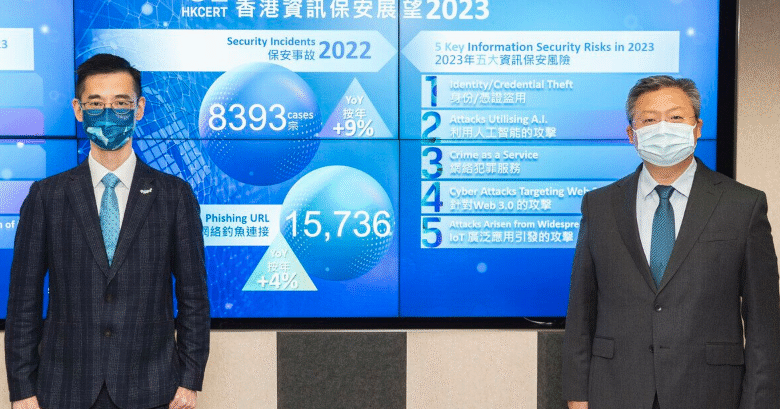Navigating the digital battlefield: the rising importance of cyber security hk

In a digitally connected city like hong kong, where finance, telecommunications, and e-commerce thrive, the need for robust cyber defenses has never been more urgent. cyber security hk is no longer just an it department’s concern—it is a central pillar of trust in today’s digital economy.
this article explores the evolving cyber threat landscape in hong kong, why cyber security matters more than ever for individuals and organizations, and how the region is responding to rising threats in both public and private sectors.
why cyber security is critical in hong kong
hong kong is one of asia’s leading financial and technology hubs, handling massive volumes of sensitive data daily. this includes customer information, banking records, intellectual property, and governmental communications. such assets make hong kong a lucrative target for cybercriminals, hacktivists, and even state-sponsored actors.
in recent years, major hong kong institutions—including universities, telecom companies, and retail chains—have experienced breaches.
thus cyber security hk has transformed from being a back-end function to a frontline business concern.
The types of cyber threats targeting hk businesses
hong kong businesses face a range of cyber threats, including:
1. phishing and email scams
these social engineering attacks trick employees into revealing login credentials or transferring funds. sophisticated spear phishing tactics even target c-suite executives.
2. ransomware attacks
cybercriminals lock important data or systems and demand payment. hong kong’s business reliance on cloud and digital infrastructure makes this threat highly disruptive.
3. ddos (distributed denial-of-service)
ddos attacks flood a system with traffic to cause downtime. these attacks are often politically motivated or used to extort businesses.
4. data breaches
data privacy regulations are tightening in hong kong. breaching customer data not only hurts reputation but also leads to severe penalties under the personal data (privacy) ordinance (pdpo).
5. iot vulnerabilities
smart buildings, vehicles, and home automation are popular in hong kong. these devices often have security loopholes that hackers can exploit to gain access to broader networks.
the business impact of poor cyber security
companies that neglect cyber security in hong kong risk much more than just financial loss. here’s what’s at stake:
- reputation damage: clients lose trust after a breach.
- financial costs: recovery costs, legal fees, and potential ransom payments.
- regulatory fines: hong kong has strict privacy laws that demand secure data handling.
- operational disruption: systems may go offline for hours or days, halting business.
in fact, hong kong’s small and medium enterprises (smes)—often lacking dedicated it teams—are especially vulnerable and less prepared to recover from a breach.
how hong kong is responding to the cyber security challenge
both government agencies and private institutions are strengthening cyber security hk frameworks. some recent initiatives include:
1. hong kong computer emergency response team coordination centre (hkcert)
hkcert provides alerts, advisories, and response guidelines.
2. legislation and compliance
hong kong enforces the pdpo, which requires organizations to secure personal data. additional proposed laws aim to increase reporting obligations for breaches and improve critical infrastructure protection.
3. public-private partnerships
collaborations between banks, telecom firms, and government bodies are helping create a unified response to cyber threats.
See also: Understanding Carretera Base: The Backbone of Road Construction
4. education and training
cyber awareness programs and skills development initiatives are now being offered to smes, professionals, and students across hong kong.
building a cyber security strategy for hk businesses
a proactive approach to cyber security hk can save companies from significant damage. a comprehensive strategy involves:
1. risk assessment
2. regular updates and patching
ensure all systems, software, and devices are updated regularly to fix vulnerabilities.
3. employee training
the human element is often the weakest link. regular cyber awareness training can help employees identify phishing, social engineering, and unsafe practices.
the role of telecom companies in hk cyber security
as key internet providers and communication facilitators, telecom companies in hong kong play a vital role in maintaining a secure digital environment. many now offer cyber security services as part of their packages, including:
- threat detection and monitoring,
- secure cloud hosting,
- ddos mitigation,
- managed firewall services.
these offerings help businesses—especially startups and smes—scale their digital operations without compromising security.
trends shaping the future of cyber security in hk
key trends affecting cyber security hk include:
1. ai-powered threat detection
artificial intelligence is being used to detect anomalies, prevent intrusions, and predict future attacks.
2. zero trust architecture
companies are shifting from perimeter-based security to a “never trust, always verify” model.
3. cyber insurance
as attacks grow, demand for insurance against losses is rising, prompting insurers to assess the cyber posture of applicants.
4. cloud security solutions
cloud migration increases the attack surface, but it also offers centralized security management, access controls, and backup options.
conclusion
cyber security hk is not just a technical need—it is an economic and societal priority. as hong kong continues to lead in digital adoption, the responsibility to secure data, infrastructure, and communications becomes shared among governments, corporations, service providers, and individuals.
for businesses in the internet and telecom sector, cybersecurity is an opportunity to offer more than just connection—it’s about trust, reliability, and long-term resilience





